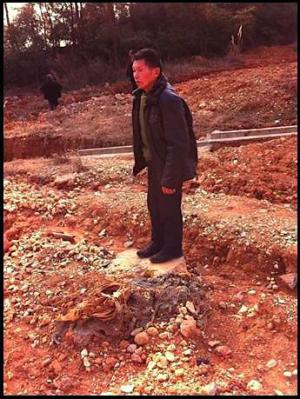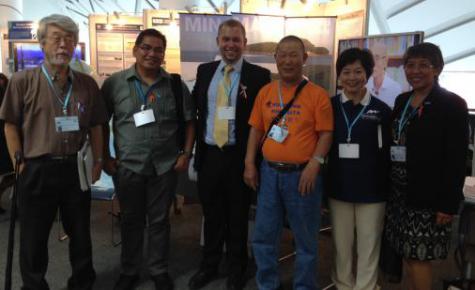2014 Milestones
2014
Reducing and Eliminating the World’s Most Hazardous Chemicals
New POPs advance towards listing under the Stockholm Convention. IPEN’s work helped advance three chemicals for listing under the Stockholm Convention. Pentachlorophenol (PCP) -used widely in telephone/utility poles-is now recommended for listing in 2015. The pesticide dicofol and the flame retardant DecaBDE are now advancing for consideration in 2017.
Mercury treaty ratification advanced. IPEN secured new resources to advance rapid ratification and implementation of the new mercury treaty, launching the International Mercury Treaty Enabling Activities Program (IMEAP). This program already has activities in 23 countries underway, and is set to expand in 2015.
Promoting Stronger International Chemicals Standards
Advanced highly hazardous pesticides (HHPs) in the global policy arena. A strategic alliance between IPEN and Pesticide Action Network International (PAN) at the global SAICM Open-Ended Working Group meeting helped to trigger a consensus decision by 116 governments (and industry) to task the Food & Agriculture Organization, the United Nations Environment Programme, and the World Health Organization to make a proposal for global actions to phase-out HHPs for decision in 2015.
Elevated awareness on endocrine-disrupting chemicals (EDCs). In December, the Endocrine Society and IPEN jointly released a new EDC guide, which brings together the latest scientific information on EDCs in a readable format for policy-makers and NGOs in developing and transitional countries. An Introduction to Endocrine Disrupting Chemicals (EDCs) has already been hailed by government representatives and NGOs as a clear and comprehensive educational tool on EDCs.
Halting the Spread of Toxic Metals
Lead paint legislation enacted or pending in 6 Asian countries. Since the outset of IPEN’s Asian Lead Paint Elimination Project, three countries (Nepal, Philippines and Sri Lanka) have enacted legislation regulating lead paint, and regulation is expected in three others by the end of 2015. In the Philippines, IPEN and manufacturers have come together voluntarily to organize a mandatory third-party certification program. Most recently, in late December, Nepal passed a national regulation to eliminate lead paint.
Launched Africa Lead Paint Project. IPEN secured and initiated a $1 million USD 3-year grant from the Global Environment Facility (GEF) for an IPEN 4-country lead paint elimination campaign in Africa (specifically: Cameroon, Ethiopia, Ivory Coast and Tanzania).
Building a Global Toxics-Free Movement
China NGOs strengthened. IPEN’s 2012-2014 EU Aid-funded China Chemical Safety Project substantially elevated the capacity of NGOs to use international chemical policies to leverage their local and national campaigns.
New Publications. IPEN produced a number of new publications in 2014 to help NGOs and others engage in chemical issues, including:
- An NGO Introduction to Mercury Pollution and the Minamata Convention on Mercury (available in 5 UN languages);
- Asia Regional Paint Report;
- An NGO Guide to SAICM (updated);
- Eliminate Lead Paint: Project Children’s Health (new editions available in all 6 UN languages);
- Social and Environmental Implications of Nanotechnology Development in Asia-Pacific;
- An Introduction to Endocrine Disrupting Chemicals (EDCs); and
- EECCA Report on EDCs: EDCs State of the Problem and Steps Forward (in Russian).
Skill Share and Technical Training. IPEN convened 3 global NGO trainings related to chemical policy and/or technical skillsharing on SAICM and Mercury Treaty negotiations. More than 115 NGO representatives from 42 countries participated in the events: Policy Strategy and Prep Meetings in Thailand (prior to the Mercury Treaty's 6th Intergovernmental Negotiating Committee meeting); Policy Strategy and Prep Meetings in Switzerland (prior to the SAICM's 2nd Open-Ended Working Group meeting); and IPEN’s 4-day, 2014 Global Meeting in China.


